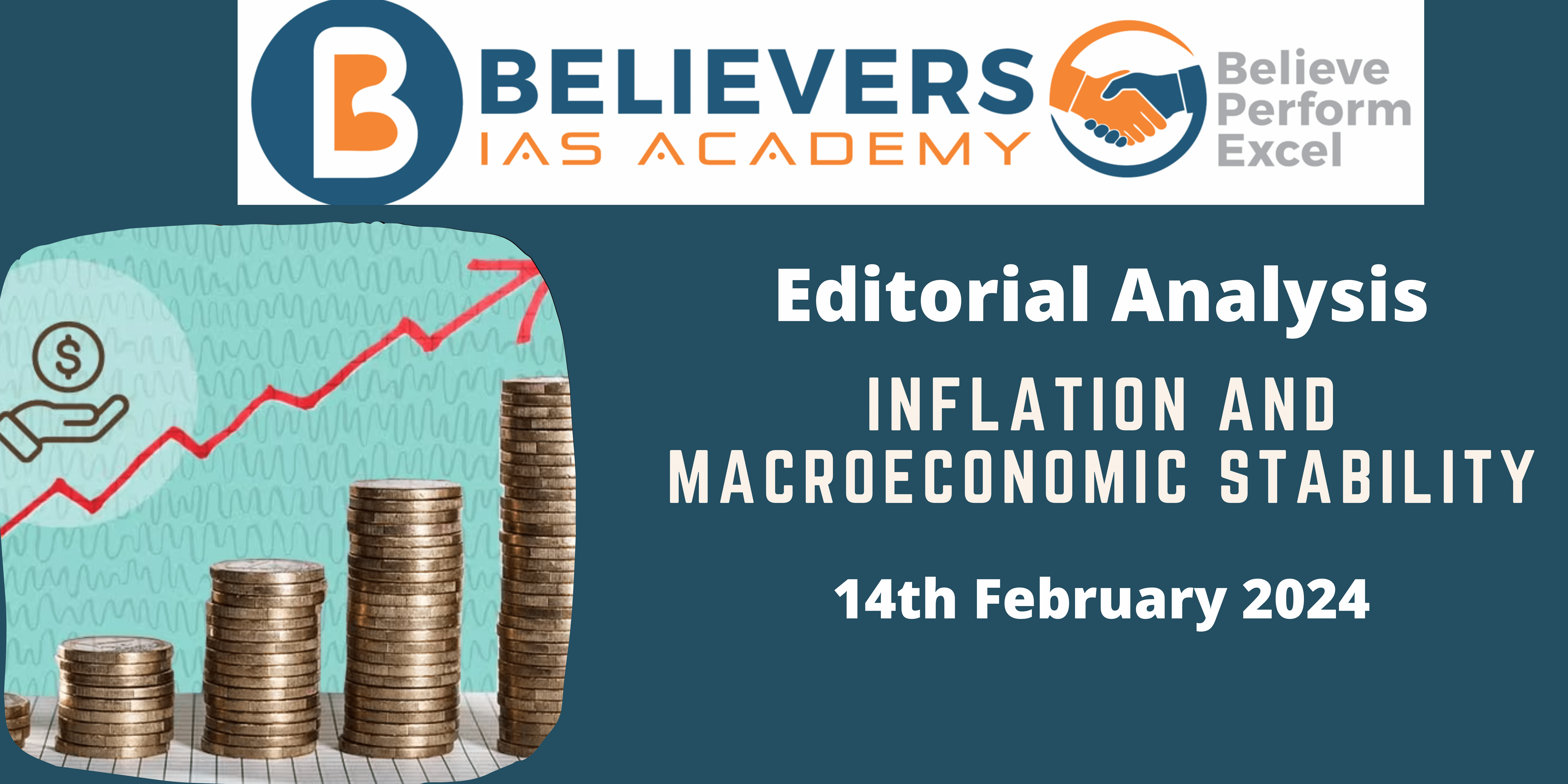Inflation and Macroeconomic Stability
Context:
The recent retail inflation data shows high inflation in key food items which might affect macroeconomic stability and challenge policymakers in addressing them.
Relevance:
GS-03 (Economy)
Prelims:
CPI, Inflation, WPI, Monetary Policy Committee
Mains Question:
Discuss the implications of persistently high food inflation on macroeconomic stability of a nation, and suggest measures to mitigate its adverse effects on the economy. (250 words)
Dimensions of the Article:
- Inflation Trends and Concerns
- Impact of Food Inflation on Overall Economy
- Agricultural Outlook and Price Dynamics
- Policy Challenges and the Way Forward
Inflation Trends and Concerns:
- The Consumer Price Index-based inflation data for January shows that the headline inflation moderating slightly to a three-month low of 5.10%.
- However, the inflationary pressures persist in key food items, including cereals, vegetables, and pulses.
- Despite a marginal decrease from December, these food items continue to show elevated price levels, posing challenges to price stability.
Impact of Food Inflation on Overall Economy:
- With food comprising a substantial portion of the consumption basket, elevated food prices not only directly impact household budgets but also have spillover effects on the prices of non-food items.
- Spillover effect: It refers to the impact that seemingly unrelated events in one nation can have on the economies of other nations.
- This dual impact amplifies inflationary pressures across the economy, posing challenges for monetary policymakers in maintaining price stability.
Agricultural Outlook and Price Dynamics:
- The data on reservoir storage levels and rabi sowing patterns further exacerbate concerns regarding food inflation.
- With reservoir storage at 49% of capacity, significantly below historical levels, the output of rabi sown crops, particularly cereals and pulses, faces risks of being impacted.
- Additionally, the recent decline in rabi sowing of rice raises concerns about the potential softening of prices in the near future, exacerbating inflationary pressures.
Policy Challenges and the Way Forward:
- Policymakers are confronted with the dual challenge of addressing inflationary pressures while ensuring overall macroeconomic stability.
- Amidst ongoing talks with farmers’ groups and the threat of intensified protests, policymakers must devise strategies to prevent a rebound in inflation.
- Measures such as enhancing agricultural productivity, addressing supply-side constraints, and ensuring effective price management mechanisms are crucial in mitigating inflationary pressures and safeguarding macroeconomic stability.




